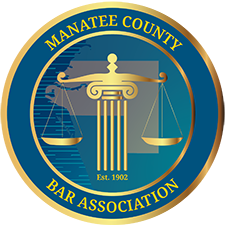6 Steps to Basic Estate Planning
Basic estate planning typically involves creating a will and/or a trust, as well as naming beneficiaries for any assets that pass outside of probate (such as retirement accounts and life insurance policies). Additionally, many people will also execute documents such as power of attorney and a living will to provide guidance in the event they become incapacitated. The goal of estate planning is to ensure that your assets are distributed according to your wishes, and that your loved ones are provided for, if something happens to you.
6 Essential Steps To Follow for Basic Estate Planning
The steps for basic estate planning typically include:
- Assessing your assets: This includes identifying all of the assets you own, including real estate, investments, bank accounts, and personal property.
- Identifying your beneficiaries: Determine who you would like to receive your assets after you pass away.
- Creating a will: A will is a legal document that lays out how you would like your assets to be distributed after your death. It also allows you to name an executor who will manage your estate.
- Naming beneficiaries: If possible, name beneficiaries on assets that pass outside of probate such as life insurance policies, retirement accounts and some types of trusts.
- Power of attorney and Living will: Documents that allow you to specify who will make decisions on your behalf if you become incapacitated, as well as detailing your preferences for medical treatment.
- Reviewing and updating your plan: Review your estate plan periodically and update it as needed to ensure that it still meets your needs and reflects your current wishes.
It’s also very important to consult with an estate planning attorney, who can help you understand the laws in your state and provide guidance on creating an estate plan that best suits your needs and the needs of your loved ones.
The Importance of Working With an Attorney on Your Estate Plan Top of Form
Working with an attorney on your estate plan can be a valuable step in ensuring that your assets are protected and distributed according to your wishes. Here are a few things to consider when working with an attorney on your estate plan:
- Schedule a consultation: Most attorneys will offer a free initial consultation to discuss your estate planning needs and answer any questions you may have.
- Discuss your assets and beneficiaries: During the consultation, it’s important to be as detailed as possible about your assets and who you would like to receive them. This will help your attorney to determine the best course of action for your estate plan.
- Understand your options: An attorney will be able to explain the various estate planning tools available, such as wills, trusts, and powers of attorney, and help you decide which are the best fit for your situation.
- Review and sign the documents: Once your estate plan has been created, your attorney will review it with you and make sure that you understand and are comfortable with everything before signing any legal documents.
- Keep your plan up to date: Estate planning should be a process, laws and tax laws can change, and life changes. Review your plan regularly and make updates as needed to make sure it still reflects your current wishes and that everything is in order.
It’s important to work with an attorney who has experience in estate planning and who can guide you through the process, ensuring that your estate plan is legally sound and that your assets will be protected and distributed according to your wishes. If you’re ready to develop a basic estate plan, we encourage you to get in touch with us and learn more about the basics of estate planning! Call 941-914-9145 to fill out our contact form and we will be in touch to schedule a meeting.






